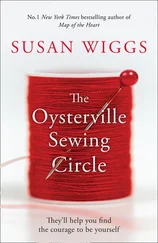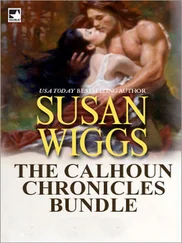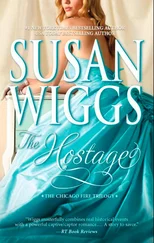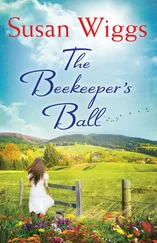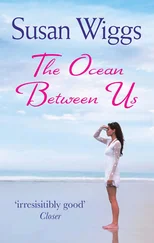Ross nodded. A wave of something—not quite relief—surged through him. It was really happening. At last, he was going home.
“What’re you going to do with yourself once you’re Stateside?” Nemo asked.
Start over, thought Ross. Get it right this time around. “I got big plans,” he said.
“Right,” Nemo said with a chuckle, heading for the showers. “Don’t we all.”
When you were in the middle of something like this, Ross thought, you didn’t plan anything except how not to die in the next few minutes. It was a total mind trip to realize he’d have to think past that now.
He spotted Florence Kennedy hunkered down in the shade, sipping from a canteen and quietly crying.
“Hey, sorry about the way I screamed at you out there,” he said.
She gazed up at him, red eyes swimming. “You saved my ass today.”
“It’s a pretty nice ass.”
“Careful how you talk to me, Chief. That mouth of yours could get you in a world of shit.” She grinned through her tears. “I owe you.”
“Just doing my job, ma’am.”
“Sounds like you’re heading home.”
“Yep.”
She dug in her pocket, took out a card and scribbled an e-mail address on it. “Maybe we’ll keep in touch.”
“Maybe.” It didn’t work that way, but she was too new to know.
He turned the card over to the printed side. “Tyrone Kennedy. The state prosecutor’s office of New Jersey,” he said. “Does this mean I’m in trouble?”
“No. But if you ever get your ass in trouble in New Jersey, try calling my dad. He’s got connections.”
“And yet here you are.” He gestured around the dusty compound. Maybe she was like he’d been—aimless, needing to do something that mattered.
She gave a shrug. “I’m just saying, sir. Anywhere, anytime you need something from me, it’s yours.” She put the cap back on her canteen and headed into the mess, clearly a different person from the newbie he’d met just a few hours before.
He was surprised to see his hand shaking as he tucked the card into his pocket. Other than a few nicks and bruises, he wasn’t wounded, yet everything hurt. His nerve endings had nerve endings. After twenty-three months of numbing himself to all kinds of pain, he was starting to feel everything again.
Ulster County, New York
For a dying man, George Bellamy struck Claire as a fairly cheerful old guy. The dumbest show she’d ever heard was playing on the car radio, a chat hour called “Hootenanny,” and George found it hilarious. He had a distinctive, infectious laugh that seemed to emanate from an invisible center and radiate outward. It started as a soft vibration, then crescendoed to a sound of pure happiness. And it wasn’t just the radio show. George had recently received word that his grandson was coming home from the war in Afghanistan, and that added to his cheerfulness. He anticipated a reunion any day now.
Very soon, she hoped, for both their sakes.
“I can’t wait to see Ross,” said George. “He’s my grandson. He’s just been discharged from the army, and he’s supposed to be on his way back.”
“I’m sure he’ll come to see you straightaway,” she assured him, pretending he had not just told her this an hour ago.
The springtime foliage blurred past in a smear of color—the pale green of leaves unfurling, the yellow trumpets of daffodils, the lavish purples and pinks of roadside wildflowers.
She wondered if he was thinking about the fact that this would be his last springtime. Sometimes her patients’ sadness over such things, the finality of it all, was unbearable. For now, George’s expression was free of pain or stress. Although they’d only just met, she sensed he was going to be one of her more pleasant patients.
In his stylish pressed slacks and golf shirt, he looked like any well-heeled gentleman heading away from the city for a few weeks. Now that he’d ceased all treatment, his hair was coming back in a glossy snow-white. At the moment, his coloring was very good.
As a private-duty nurse specializing in palliative care for the terminally ill, she met all kinds of people—and their families. Though her focus was the patient, he always came with a whole host of relatives. She hadn’t met any of George’s family yet; his sons and their families lived far away. For the time being, it was just her and George.
He seemed very focused and determined at the moment. And thus far, he reported that he was pain free.
She indicated the notebook he held in his lap, its pages covered with old-fashioned spidery handwriting. “You’ve been busy.”
“I’ve been making a list of things to do. Is that a good idea?” he asked her.
“I think it’s a great idea, George. Everybody keeps a list of things they need to do, but most of us just keep it up here.” She tapped her temple.
“I don’t trust my own head these days,” he admitted, an oblique reference to his condition—glioblastoma multiforme, a heartlessly fatal cancer. “So I’ve taken to writing everything down.” He flipped through the pages of the book. “It’s a long list,” he said, almost apologetically. “We might not get to everything.”
“All we can do is the best we can. I’ll help you,” she said. “That’s what I’m here for.” She scanned the road ahead, unused to rural highways. To a girl from the exhausted midurban places of Jersey and the sooty bustle of Manhattan, the forest-clad hills and rocky ridges of the Ulster County highlands resembled an alien landscape. “It’s not such a bad idea to have too many things to do,” she added. “That way, you’ll never get bored.”
He chuckled. “In that case, we’re in for a busy summer.”
“We’re in for whatever summer you want.”
He sighed, flipping the pages. “I wish I’d thought about these things before I knew I was dying.”
“We’re all dying,” she reminded him.
“And how the devil did I luck into a home health care worker with such a sunny disposition?”
“I bet a sunny disposition would drive you crazy.” Although she and George were new to each other, she had a gift for reading people quickly. For her, it was a key survival skill. Misreading a person had once forced Claire to change every aspect of her life.
George Bellamy struck her as circumspect and wellread. Yet he had an air of loneliness, and he was seeking…something. She hadn’t discovered precisely what it was. She didn’t know a lot about him yet. He was a retired international news correspondent of some renown. He’d spent most of his adult years living in Paris and traveling the globe. Yet now at the end of his life, he wanted to journey to a place far different from the world’s capitals.
Lives came to an end with as much variety as they were lived—some quietly, some with drama and fanfare, some with a sense of closure, and far too many with regrets. They were the slow poison that killed the things that brought a person joy. It was amazing to her to observe the way a generally happy, successful life could be taken apart by a few regrets. She hoped George’s searching journey would be to a place of acceptance.
Those who were uninitiated in her area of care seemed to think that the dying knew the answers to the big questions, that they were wiser or more spiritual or somehow deeper than the living. This, Claire had learned, was a myth. Terminally ill patients came in all stripes—wise, foolish, filled with happiness or despair, logical, loony, fearful…in fact, the dying were very much like the living. They just had a shorter expiration date. And more physical challenges.
The countryside turned even prettier and more bucolic as they wended their way Northwest toward the Catskills Wilderness, a vast preserve of river-fed hills and forests. After a time, they approached their target destination, marked by a rustic sign that read, Welcome To Avalon. A Small Town With A Big Heart.
Читать дальше




